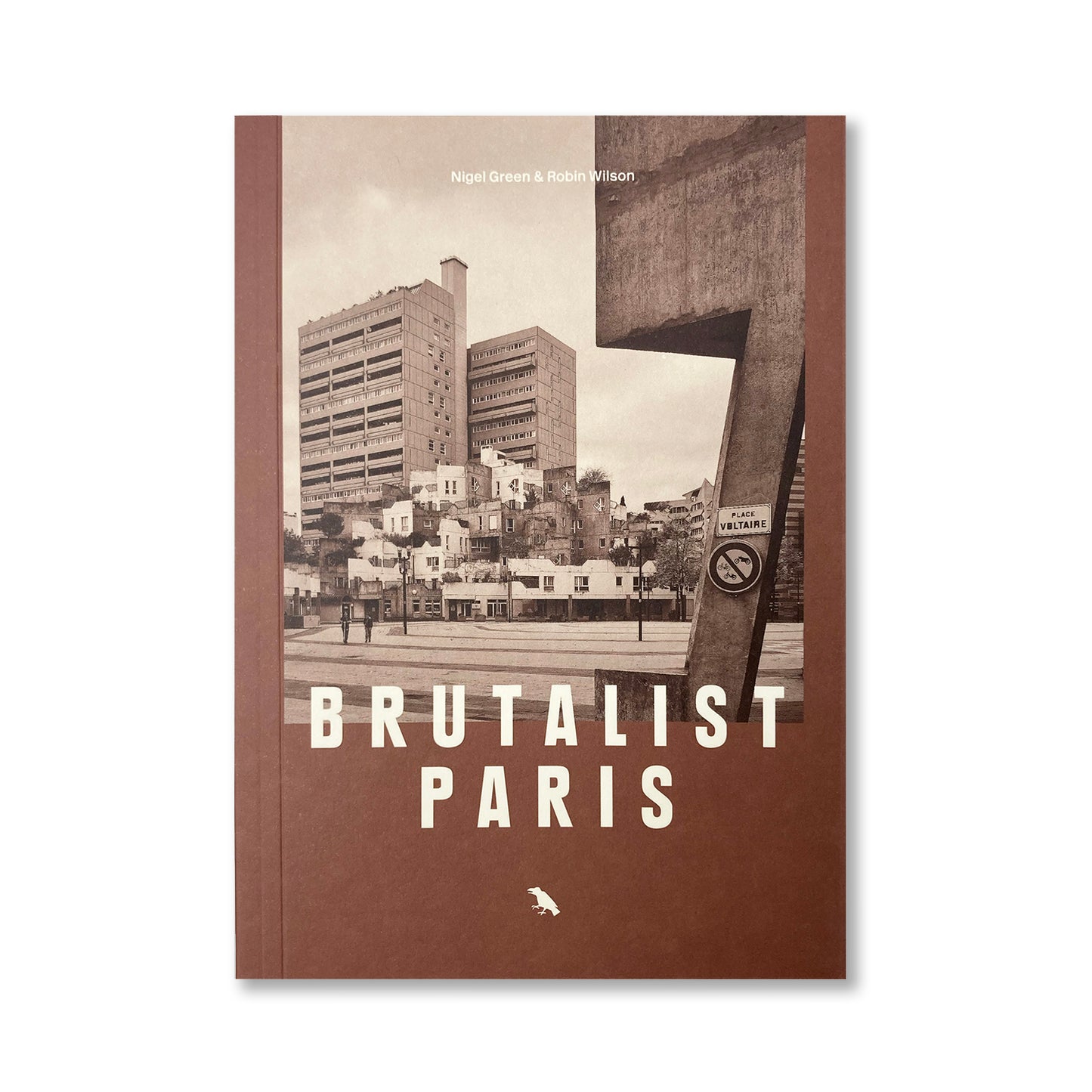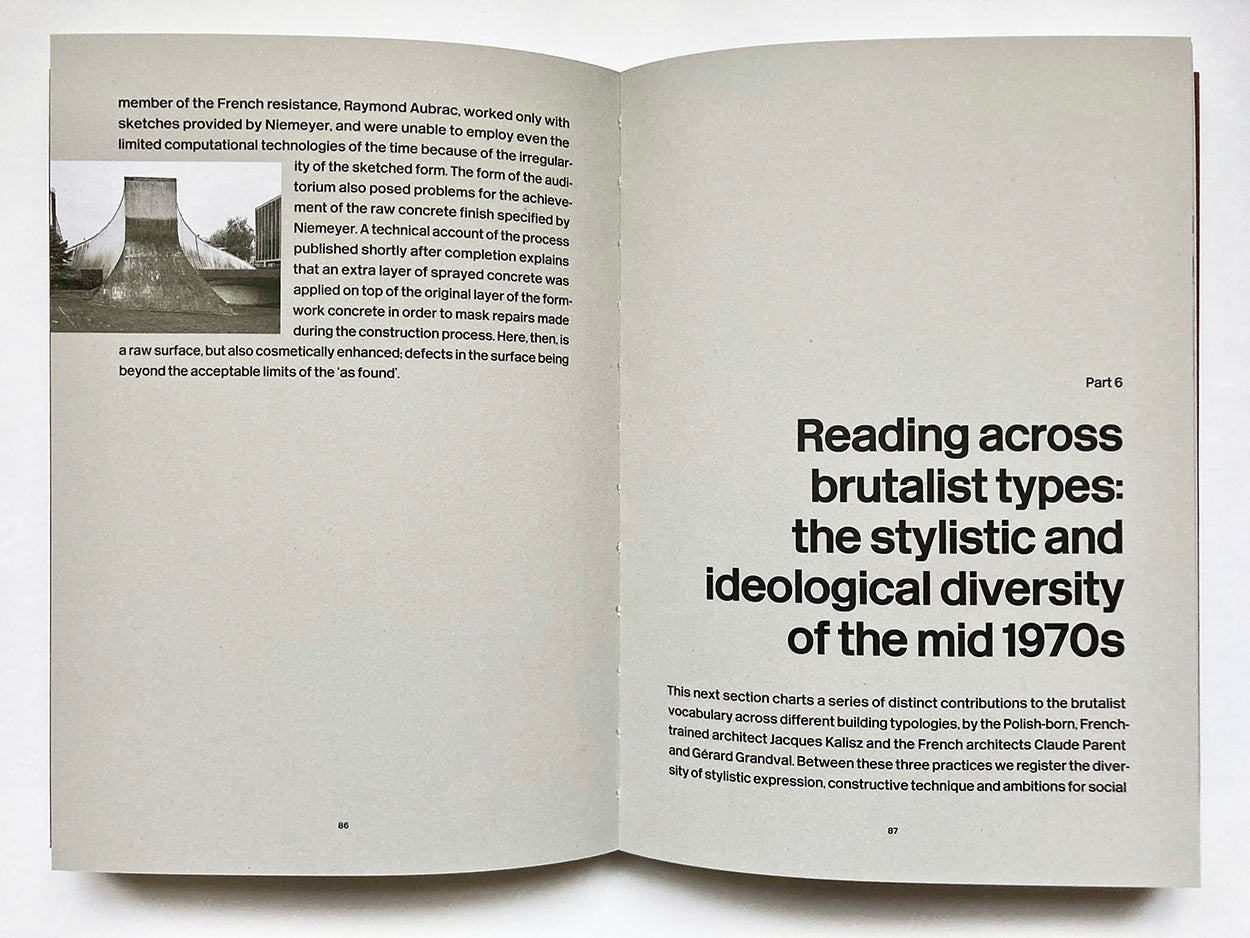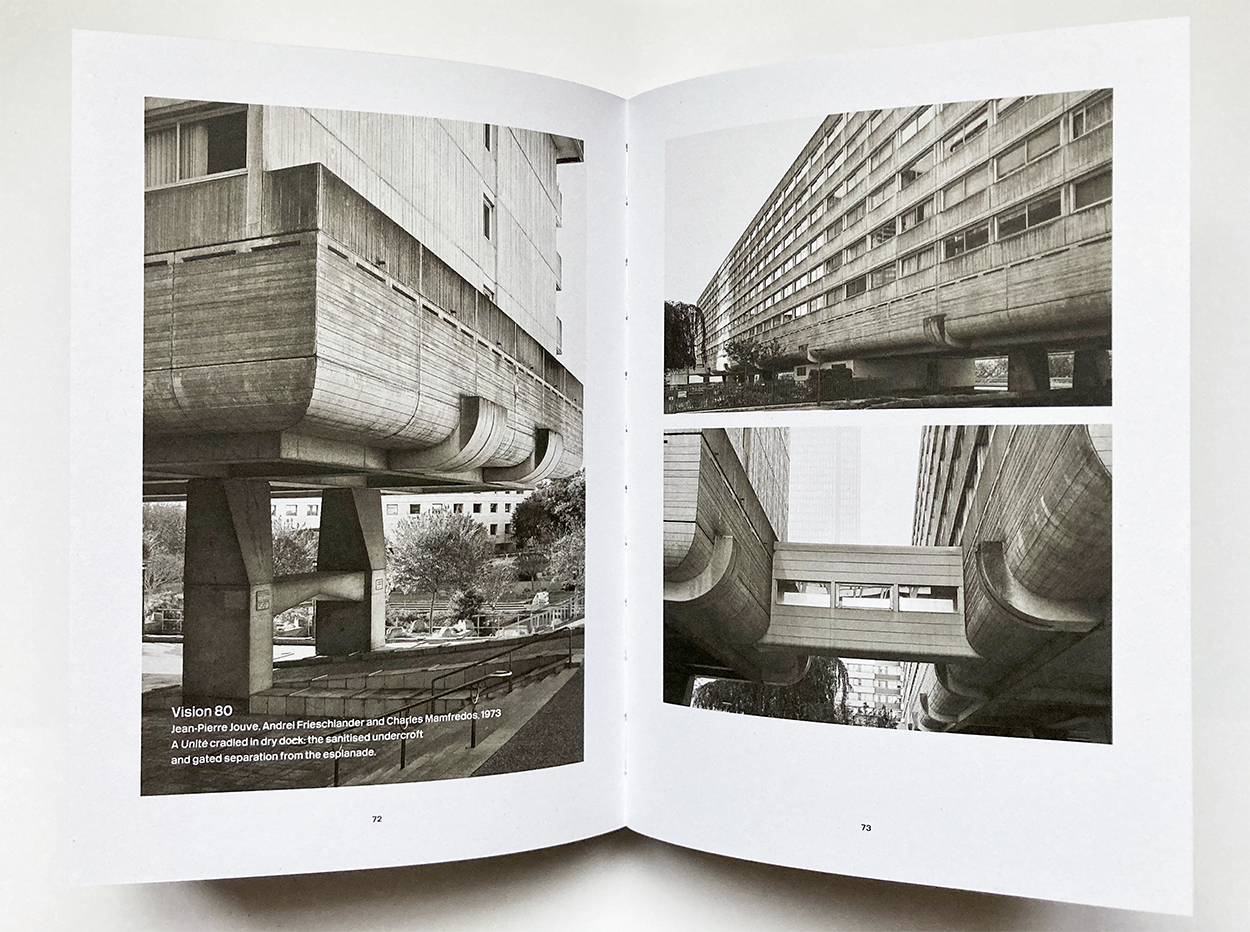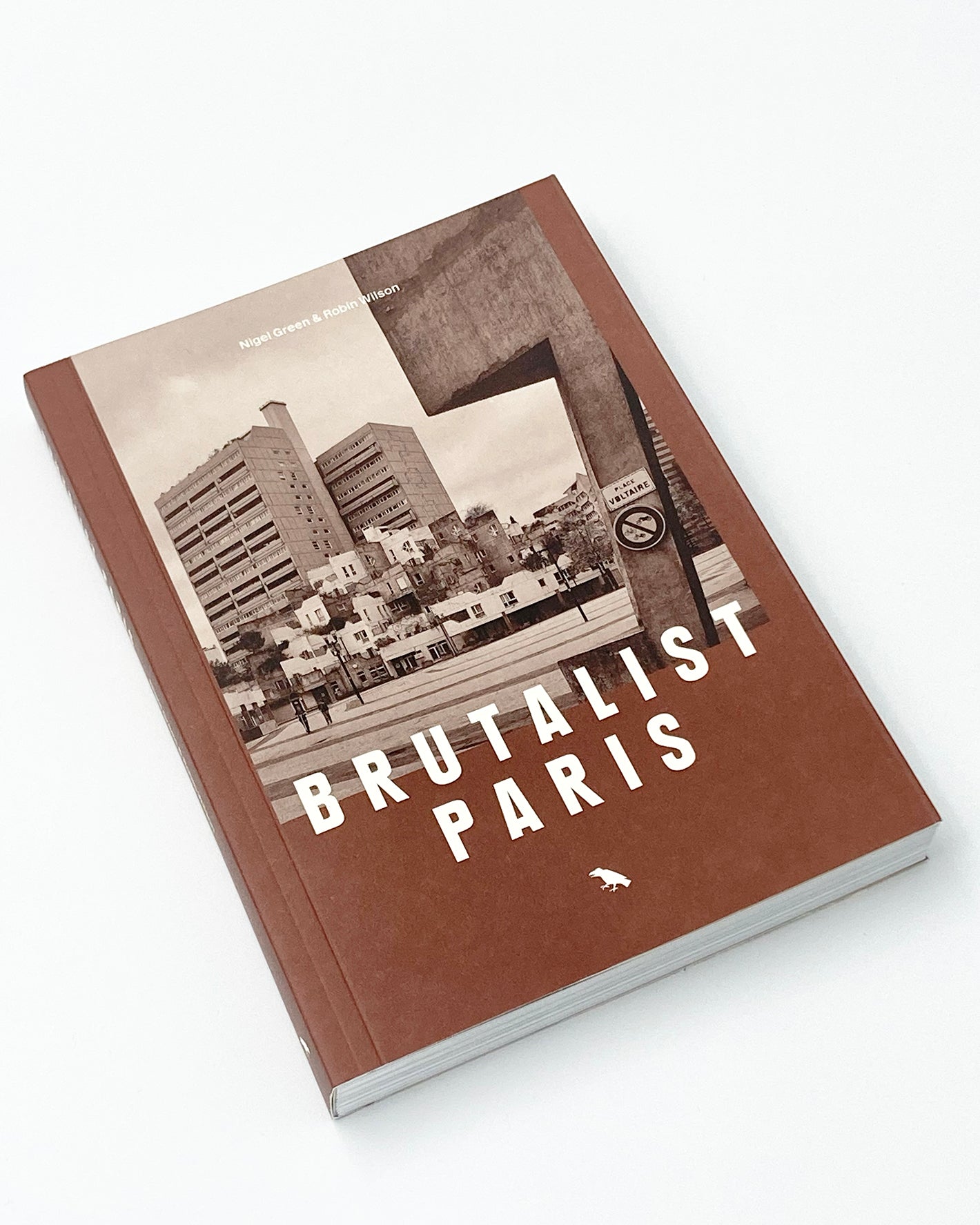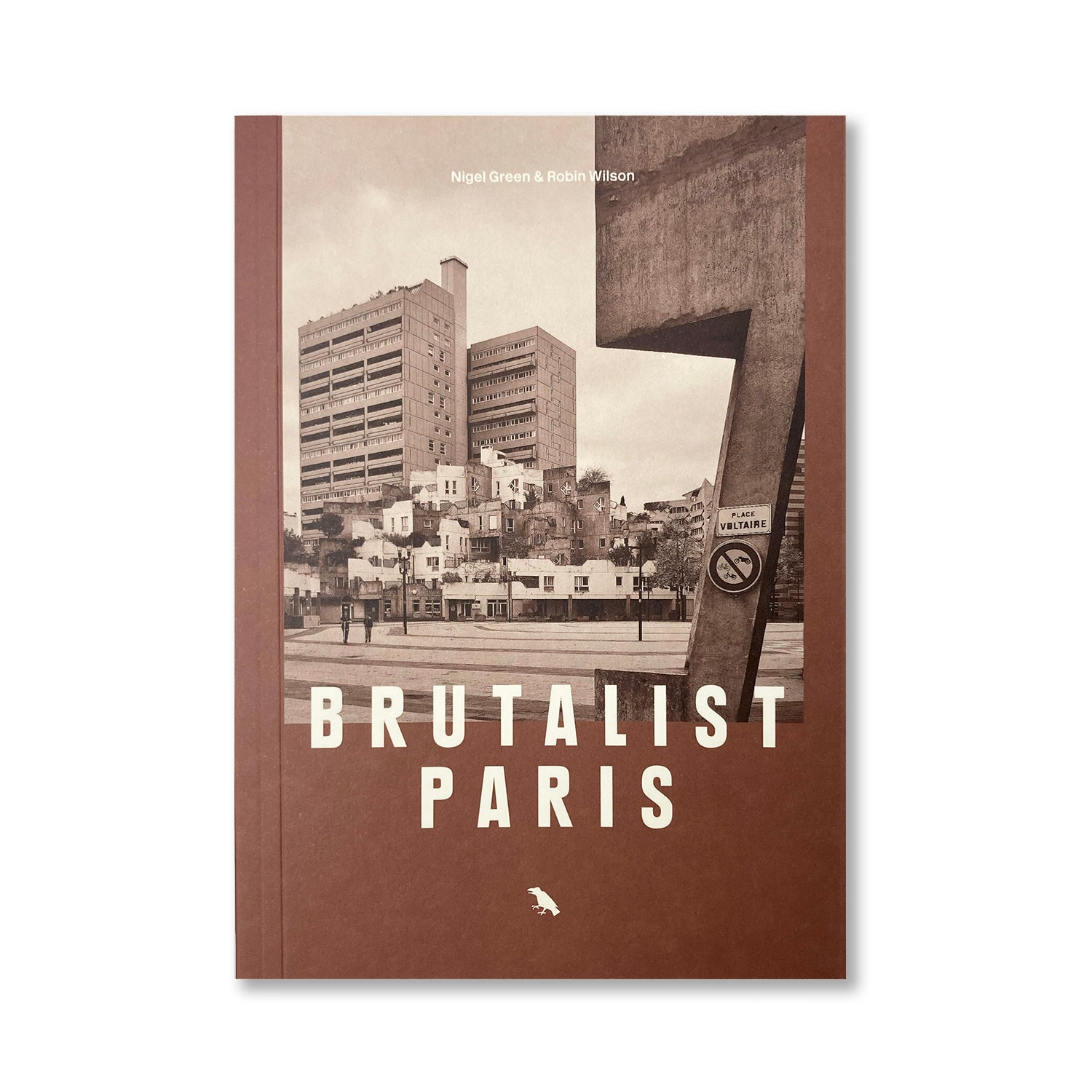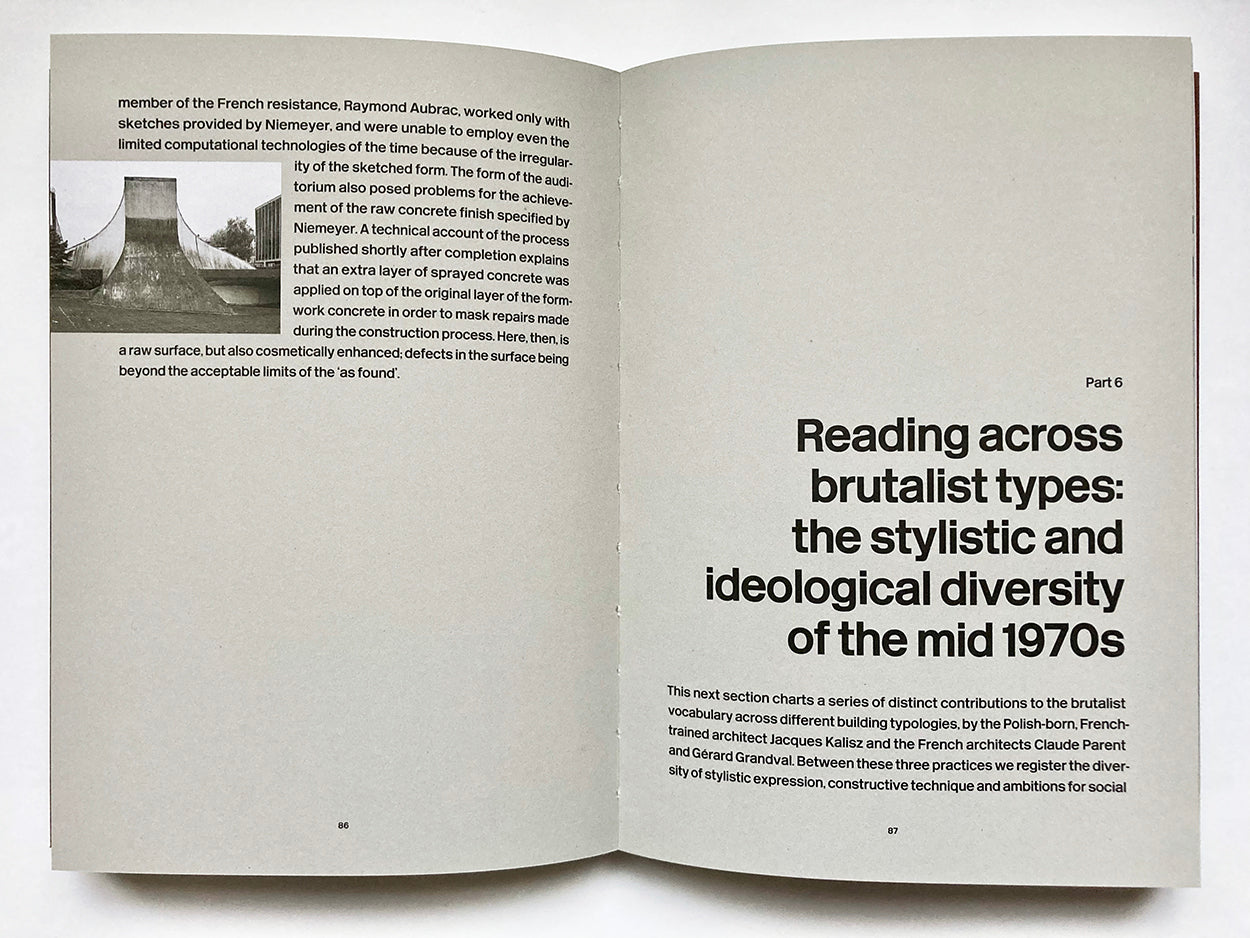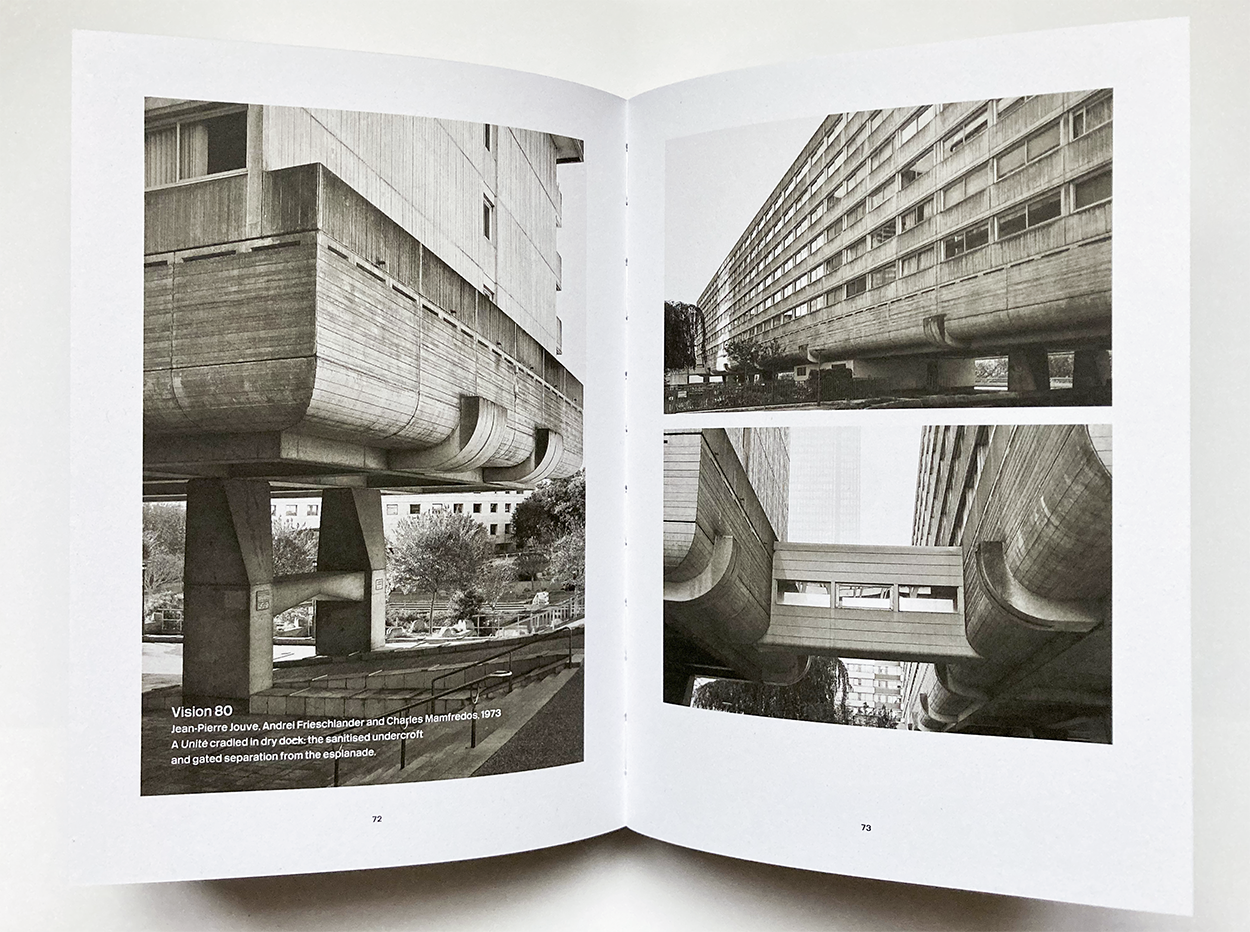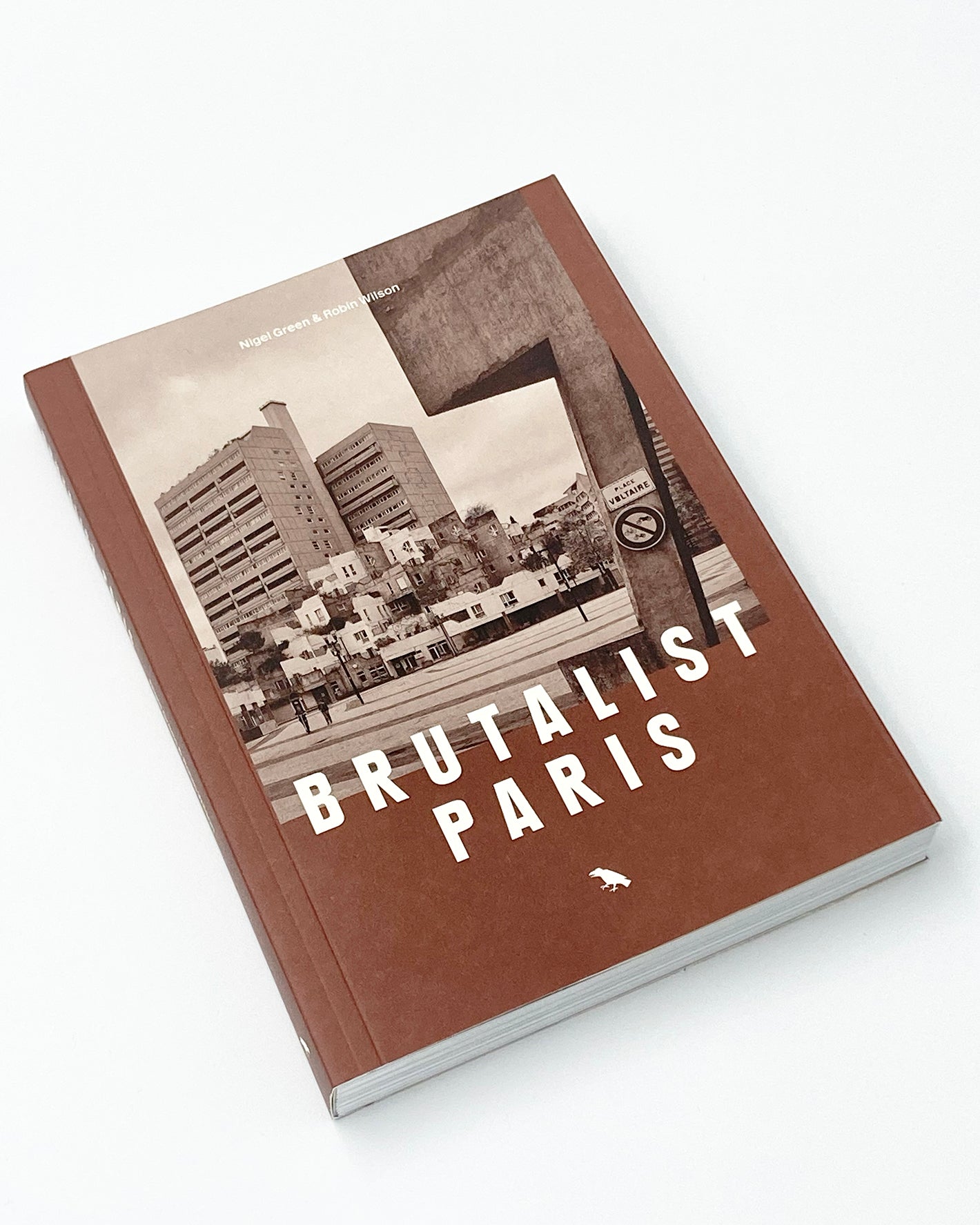Brutalist Paris
Brutalist Paris
Couldn't load pickup availability
Brutalist Paris is the first thoroughly researched English-language book about Brutalist architecture in and around Paris. Drawing on over five years of research, interviews and photography conducted by Robin Wilson and Nigel Green of Photolanguage, Brutalist Paris represents a substantial contribution to the study and exploration of Brutalist architecture.
Brutalist Paris is available as part of our discounted set of Paris titles here.
Details:
As featured in the London Review of Books, ArchDaily, Dezeen, Wallpaper, World of Interiors, Design Boom, New York Times T Magazine and elsewhere.
Brutalist Paris has been printed by a UK-based B Corp-certified printer. It is printer on recycled quality paper and OTA-bound in the UK. In order to finance the high quality of printing, we raised funds from over 350 people on Kickstarter.
The book includes seven essays by Dr Robin Wilson, details for more than 50 individual buildings, maps and more than 150 black and white photographs by Dr Nigel Green.
Dr Robin Wilson is a critic, curator and associate professor of history and theory at the Bartlett School of Architecture. He has published many reviews on art, architecture and landscape in the architectural press, and written extensively on representation and architecture in academic journals and books.
Dr Nigel Green is a photographer, artist and lecturer. He has exhibited and published many photographic projects that document genres of modernist architecture across the UK, Europe and the former Eastern Bloc.
--
Brutalist Paris is the first thoroughly researched, English language study of Parisian Brutalist architecture. It constructs a unique photographic record of over 50 buildings across Paris and brings a new interpretation of Brutalism in the French context. The book is the result of many journeys, from the Parisian centre to its outer peripheries, and situates Brutalism within the broader social, political and cultural context of Paris, including its appearance in film and television. It describes Brutalism’s successes and failures in Paris, from an architecture of monumental urban form to intricately crafted living spaces; from valued, historic monuments to abandoned ruins.
--
Reviews:
“The successes and failures of Parisian brutalism are recounted in this valuable work […] The peregrination explores the Grands Ensembles, the housing estates and ZUPs, satellite places designed as alternative and modern environments, today an integral part of the heritage of Greater Paris.” – Alice Bialestowski in AMC Architecture
“The book's authors go beyond the contemporary aesthetic attention that Brutalism has garnered in recent years. They analyze the evolution of the style's definitions, examine the relationship between the projects and their site/landscape, and explore experimental programmatic and design concepts that the movement offers to contemporary architectural concerns. Through their analysis, Wilson and Green unpack the complexity of Brutalist architecture, providing valuable insights into the movement's lasting significance.” – Danae Santibanez in ArchDaily
“A wonderful book which explodes the myth of Paris as a theme-park of the nineteenth century, this compelling compendium of Brutalism builds on Blue Crow's excellent architectural maps to give a wholly different and striking view of the city.” – Eddie Heathcote in the Financial Times
“It is strange given the enormous wealth of extremely high modernist architecture in and (mainly) around Paris that there isn't a book in English on the subject already... This one steps into the breach nicely and obliquely - it has a very useful gazetteer of buildings and housing estates and excellent photographs, but avoids both sociology and 'fuck yeah concrete' fetishism, preferring serious analysis of what Parisian Brutalism actually is in terms of structure, materials and urban form.” – Owen Hatherley
“Brutalist Paris is very far from being a light-hearted skim over the uncompromising aesthetics of the city’s post-war concrete architecture. Instead, it puts the spotlight on 50 key buildings, connecting them with seven academic essays that look deep into French culture’s relationship with architecture, modernity, and social change.” – Jonathan Bell in Wallpaper
“This delightful alternative guide to the wonders of Paris foregrounds the city’s extraordinary brutalist heritage and is a must read for any armchair traveller or urban explorer.” – John Grindrod
Share
